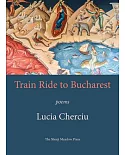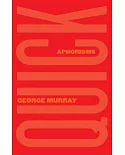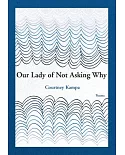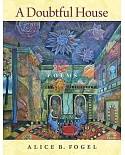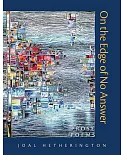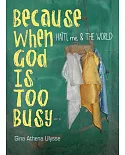"Employing a vast array of scholarship in the service of her own brilliant historical imagination, Maurya Simon offers in The Raindrop's Gospel an ingenious reconstruction of the love story of
St. Jerome and St. Paula. Human in their saintliness, agonizingly saintly in their humanness, Jerome and Paula emerge in this beautifully crafted verse novel as fully realized erotic,
spiritual, and intellectual beings, all the more passionate for their struggles against passion. Simon's poetic gifts---sensuous language, dazzling imagery and figures, and a variously textured
lyricism---are perfectly suited to this unforgettable tale of love's body and love's soul." B.H. Fairchild
"This wonderful verse novel leads us through the deserts of St. Jerome's erotic denials and tempts up with his greatest of sins. These poems explore what he felt as he agonized over how to
punctuate the Vulgate bible and how to keep his thoughts pure. Simon shows us precision can be excruciatingly sensual and denial can be supremely erotic. The Raindrop's Gospel compels us with a
powerful combination of dramatic momentum and lyrical intensity. Move over St. Theresa, Christianity has a new model for ecstatic passions." Jay Snodgrass, Judge, Elixir Press Ninth Annual
Poetry Awards
"For what does the spirit yearn? To know God. Maurya Simon's wonderful new book, Ghost Orchid, throws fresh light on that traditional question and answer in poems full of the sensuous language
of the `Song of Songs' and the graphic images of modern disaffection. She shows us good and evil, both conscious and unconscious, and, even as she doubts such a reality, asks for God's `touch
upon our waking lives.' The yearning to know God, the legacy of human generations, has its latest expression in these ravishing poems." Mark Jarman
"In these poems that hover somewhere between the lyric and the narrative, between aubade and the troubadour's song and the griot's incantatory orature, between Virgil's joy and Horace's
reasoned arguments, Simon charts a path of transformation and possibility, where the true redemption is the realization that all love is light. This baptism is for the soul to accept that the
body will be divine but only on its own terms, and this is not shame, this is not sin. Scholars of American literature will hear all the echoes of Hawthorne's `The Scarlet Letter' and its
cautionary note, one that Chaucer sounds against Bunyan's `Pilgrim's Progress,' the caution, relevant in our times, is that the idea of purity, and any attempts to force it, is the true
tyranny. In this way, Simon's book echoes the message that has been spooling through history every time the profane and the divine collide; a ripple across the soul's calm." Chris Abani, from
the Afterword


